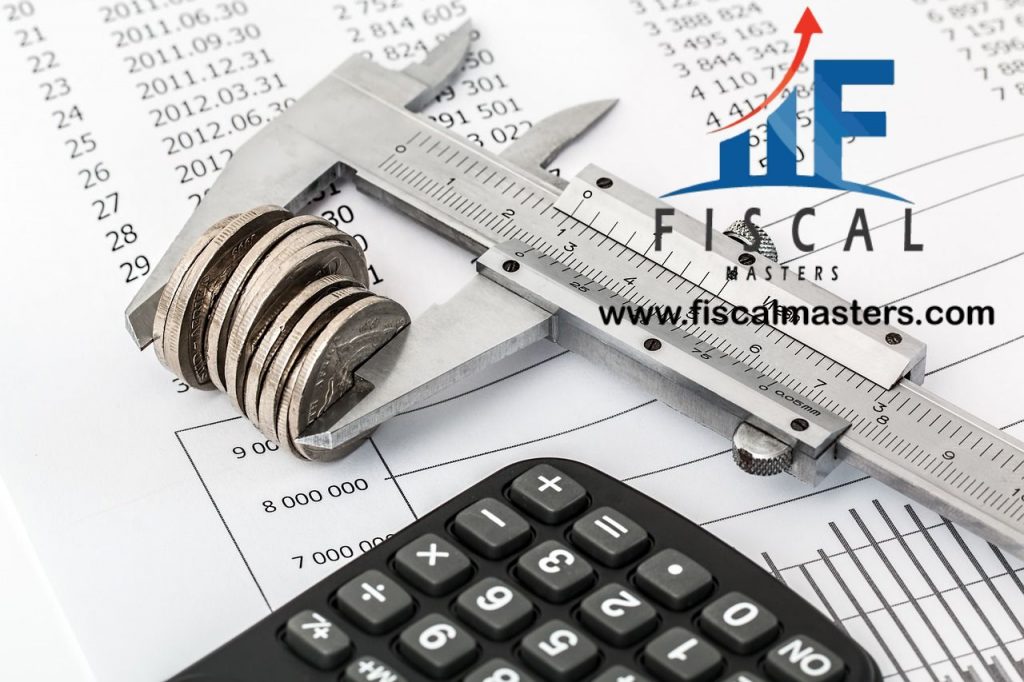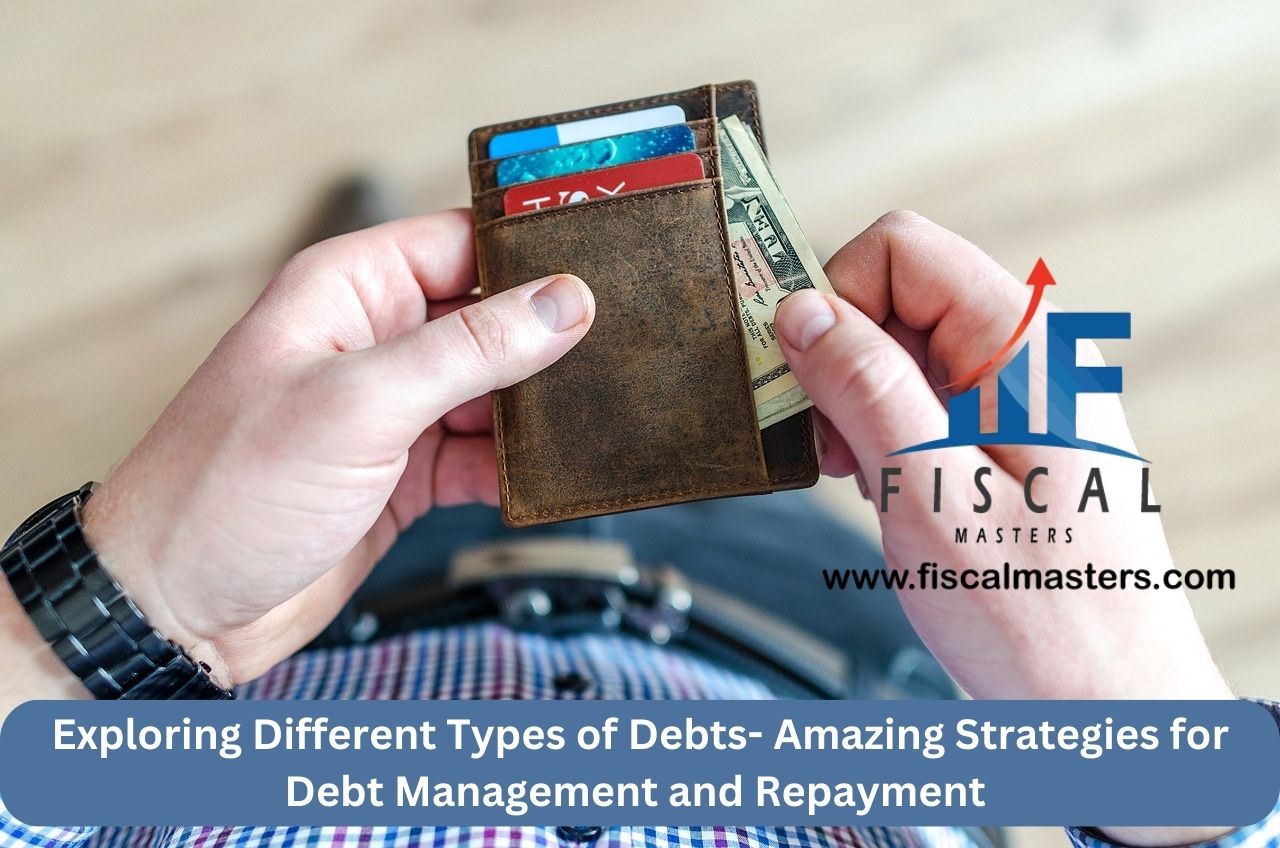Did you know that an average American has a debt of $5,733, most of which is credit card debt? Most people with an even higher credit card debt are between the ages of 40 and 49. In this era of inflation, credit card debt management becomes increasingly difficult.
Several options are available if someone wants to reduce their remaining debt balance and become financially stable. This article will discuss the different types of debt and how you can use certain strategies to pay them off efficiently.
What Does Debt Management Mean?
Debt management is a process that helps with the management of financial planning as well as budgeting. There are a number of strategies that a person can implement to reduce the debt and turn it into zero.
Debt management is also possible with the help of a credit counselor with professional experience. On the other hand, you can also manage your debt yourself. No matter which method you choose. Both have their own pros and cons. Start with setting up a plan to help you move forward. However, if you get stuck at some point, you should consider hiring an expert to do the job.

What are the Different Types of Loans when it comes to Debt Management?
A person can be in one or different types of debt in his lifetime. However, there are two major types of concern here. One is called secured debt, and the other is unsecured debt. In secured debt, the person has an asset that can serve as a safety net. The borrower pledges the asset to the lender if they cannot repay the loan. If the loan is not paid, the lender can seize that asset.
On the other hand, unsecured debt does not have a collateral. In such circumstances, the lender relies on the ability of the borrower to pay back the amount. With unsecured debt, the borrower and lender are bound by a contractual agreement. If the borrower defaults, the lender can take the contract to court.
Credit Cards
One type of revolving debt is a credit card. More than half of the world’s population has a credit card. A revolving debt is open-ended; users can reuse their cards once they pay their dues. Income and credit score are two factors that define your credit limit.

Read more on Credit Score: Understanding Credit Scores: How to Improve and Maintain a Good Credit Score- July 2023
Mortgages
One of the most significant and common types of debt is Mortgage debt management. It is usually made to buy homes or anything related to property. Mortgages typically have a low-interest rate, but they are for the long term, too. A typical mortgage plan may last for 15 or even 30-year periods.
Student Loans
Education expenses are high for students who wish to continue their studies. Various types of student debt help cover these expenses. It involves the lender paying the entire amount, whereas the borrower pays it off monthly. Most of this amount is paid after a student graduates. The federal government can also be a lending party in this case.
Auto Loans
These loans are granted to purchase cars or any other type of vehicle. A bank can receive auto loans or third-party car dealerships that lend out loans. Like student loan repayment plans, car loans are also accepted in lump sum amounts and are returned in installments along with the interest. In default, the lender has the authority to seize the vehicle.
Legal and Ethical Considerations of Debt Management
Borrowers have certain rights when it comes to practices of debt management. These include factual credit reporting and fair methods of debt collection. They also have the right to access any credit counseling service they want.
If individuals are aware of these rights, they can easily protect themselves from unfair debt management practices. Individuals aware of their rights know how to protect themselves from dishonest debt collectors legally.
A Fair Debt Collection Practices Act (FDCPA) is also in place to protect borrowers from unfair, deceptive, and abusive collection practices. An understanding of the FDCPA guideline helps borrowers to manage debt in a better way.

What are the Strategies for Debt Management?
A few months of unemployment or extra spending can make your debt unmanageable. There are higher chances that it may take longer for you to pay it back. If you feel your debt management could be better, stick to a strategy. By adopting one of these strategies, you will slowly and steadily work your way towards zero debt.
Read More: How to get out of debt on a low income
Debt Management Plan
Debt Management plan is an agreement between borrowers and credit counseling agencies that helps consolidate unsecured debts into monthly payments. It helps in the reduction of interest rates and waives extra fees. Furthermore, a debt management plan also helps to establish a proper repayment schedule so that it gets easier to reduce the debt to zero.
Debt Consolidation
In this strategy, multiple debts are combined into one loan. You can combine several types of debt consolidation loans in this strategy. A positive aspect of Consolidating debt is that it helps make the terms more favorable for the borrower. It helps reduce interest; however, on the downside, the repayment schedule goes on longer. Personal loans are the best type of loan for debt consolidation.
Debt Settlement
In this strategy, the borrower and lender agree that the borrower pays less than he owes. Debt settlements help reduce the amount borrowed amount to a great extent. If someone adopts this strategy, it can reduce the debt amount. However, debt settlement also affects the credit score for future loans. Therefore, it is crucial to make careful consideration before selecting the strategy.

More on this: The Impact of Credit Card Debt on your Credit Score: How to Manage Personal Debts Effectively-September 2023
Bankruptcy
Bankruptcy is the last resort when it comes to debt management strategies. With the help of this strategy, individuals can get rid of their debt via legal process. The other option is reorganizing the debts to be easy to pay off but it happens under court supervision. Declaring bankruptcy gives individuals a fresh start when they are overwhelmed by debt. However, just like debt settlement, it negatively affects an individual’s credit score.
Snowball Method
The debt snowball method is to pay off smaller debts first and then begin proceeding toward paying off the bigger ones. It is similar to creating a snowball effect. For this strategy, you need to list down all the debts that you owe. After this, you will have to sort these into ascending order. However, you must pay off the minimum amount of all the bills. Send extra cash to the account with the smaller balance until zero.
Repeat the process with other debts. As you pay off balances, more of your funds will be free to pay off other debts. Seeing the progress as you slowly tick off the obligations is also motivating.
Avalanche Method
The Debt avalanche method is also similar to the snowball method. However, you must first pay off debt with a higher interest rate in this method. You must first focus on paying the debt with the highest interest rate. At the same time, continue making minimum payments to the rest of the obligations. The avalanche method reduces the interest amount eventually, freeing up cash so that you can pay off other debts.
How does Debt Management Affect Credit Score?
Debt management strategies have both positive and negative effects on credit score. For instance, debt consolidation has a harmful impact on your credit score. However, if you practice good debt management techniques, it eventually returns to its original scores. Rebuilding of credit score is also possible by repaying debt promptly.

Debt Repayment Tips
Effective debt management allows you to not worry about developing a strategy. Therefore, it is essential to utilize these tips so your budget always stays controlled.
Budgeting
The first and simplest rule of debt management is budgeting for debt repayment. It not only helps in tracking income and managing expenses but also helps pay debts. Once you understand how and where you are spending, budgeting becomes a lot easier. All you need to do is control these spending habits to pay off your debts quickly.
Apps and Software
Due to the increase in demand for debt management, companies are now focusing on building debt management software and apps. These tools help in creating personalized goals depending on your income and savings.
Credit Counseling
It is a third-party service that provides borrowers with primary education and guidance on managing debt and credit. If you work with a credit counselor, you will get a better idea of how your financial situation is. Another benefit of debt counseling services is that you will also notice an improvement in your financial health.
Support Groups for Debt Management
If you want debt management support, joining support groups is one of the best ways. You can learn and gain insight from others in similar situations in these groups. These groups not only help give practical advice but also provide mental and emotional support.

The Takeaway
Proactive debt management is beneficial in multiple ways; it improves credit scores financial stability, and reduces mental stress. Implementing effective debt management strategies can help borrowers be free from the shackles of debt. Debt management is a continuous process that requires commitment and discipline. You must constantly assess your debt situation and manage it accordingly.
The best debt management strategy depends on the borrower’s financial habits. Some may feel the snowball effect works best for them, whereas others may like the avalanche method. Investigating each option is essential before proceeding to adopt a strategy.

Your article helped me a lot, is there any more related content? Thanks!